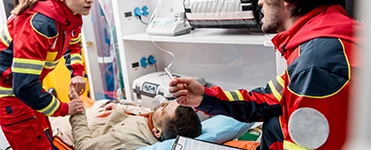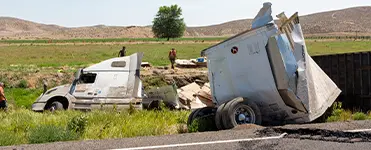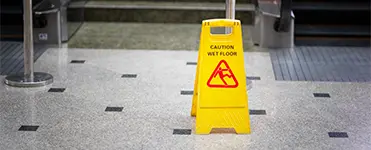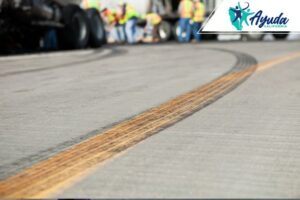Is California A No-Fault State?
When it comes to understanding the legalities and nuances of personal injury and car accidents, one key concept that often arises is fault. Many states in the United States have adopted no-fault laws to simplify the process of determining liability and providing compensation.
So, is California a no-fault state? The straightforward answer is no. California operates under a fault-based system, which means that to receive compensation for damages in a car accident, you must establish someone’s fault.
In this blog, we will explore the distinctions between fault-based and no-fault systems, as well as the steps you need to take to secure compensation in California.
Victim of an accident?
Let our award-winning lawyers fight for you.
FREE Consultation. No Fees Unless We Win.
Understanding No-Fault Insurance
To understand the concept of a no-fault state, let us first define what California no-fault insurance means. In a no-fault system, each party involved in an accident is responsible for seeking compensation from their own insurance company, regardless of who caused the collision. This approach aims to expedite the claims process and avoid prolonged legal battles to determine who is the at-fault driver.
Is California a No-Fault State?
California is not a pure no-fault state when it comes to car accidents and personal injury claims. Instead, California operates under a system known as a “fault-based” or “tort liability” system. In this system, the person who is determined to be at fault for an accident is responsible for compensating the injured party for their damages.
The concept of comparative negligence is applied, allowing the responsibility for an accident to be divided among numerous parties involved. It means that each party involved in a collision may be assigned a percentage of fault based on their contribution to the accident. The amount of compensation awarded is then adjusted based on the assigned percentage of fault.
In California, even if you are found partially at fault for an accident, you may still be entitled to recover damages under the comparative fault laws. However, the compensation you receive may be reduced by the percentage of fault attributed to you. For example, if you are found 20% at fault and awarded $10,000 in damages, your final compensation would be $8,000.
Exceptions to Fault-Based Liability
While California primarily operates under a fault-based system, there are instances where no-fault principles come into play. In cases involving motor vehicle accidents, California law requires drivers to carry personal injury protection (PIP) insurance policies.
PIP insurance covers the insured party’s medical expenses, regardless of fault. However, PIP coverage is not mandatory in California and can be waived by the insured.
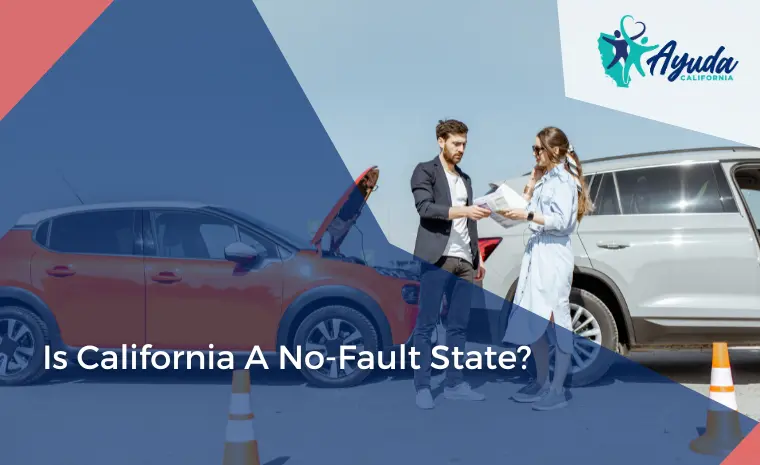
Who Determines Fault?
In California, fault in an auto accident is determined by the insurers of the parties involved, as the state operates under the tort system, unlike no-fault states. After examining the particulars of the collision, the insurers determine who is the at-fault party for the accident, which may involve apportioning fault to both drivers in certain circumstances.
For example, one driver might be assigned 60% of the blame while the other receives 40%. The amount of fault impacts whether or not the guilty party can receive financial compensation, which remains true even in the case of a no-contact auto accident.
A no-contact auto accident arises when a driver’s actions force another driver to swerve unexpectedly, resulting in a collision with another object such as a tree. To be compensated, the driver must demonstrate that the at-fault driver’s actions led to the collision and other additional damages.
Can A Personal Injury Lawyer Help?
An experienced car accident attorney specializing in car accidents can assist you in collecting evidence to support your case and raise your chances of obtaining damages from filing insurance claims against the liability insurance.
- Ensuring financial responsibility: As per California law, drivers must always maintain sufficient accident coverage. To pursue compensation, your attorney can assess your current insurance coverage and provide recommendations on the best course of action.
- Official reports: Although a police report is crucial to your case, it may not fully clear you of responsibility in an accident. Accident attorneys can recommend different ways to get evidence that support your case.
- Audio-visual proof, photos, and eyewitness accounts: When it comes to determining fault in an auto accident case, the more evidence you have, the stronger your case is likely to be. Audio-visual proof, like recordings from dash cams or security cameras, can show the accident as it happened, revealing details that might otherwise be missed. Photos can document property damage and the accident scene, which can be especially helpful in proving the severity of your bodily injuries. Witnesses can also play a crucial role in establishing fault, as they can provide firsthand accounts of what they saw and heard at the scene.
- Securing compensation: Irrespective of whether you want to claim compensation from your insurance provider or the other driver, your personal injury attorney can offer legal advice throughout the process and help maximize your damage recovery.
Witness An Accident? What Should You Do?
Suppose you happen to witness an accident, like a car crashing into the back of another car while walking down the road. So what should you do? Here are some steps you can take:
- Prioritize your safety – Before stopping and getting out of your vehicle, ensure that you are in a secure location.
- Call for assistance – If the accident appears serious or there are injuries or deaths, immediately call 911 for help.
- Provide aid – If you decide to approach the accident site to assist, watch out for other automobiles and only move someone in a manner that is necessary for their safety.
- Don’t hesitate to offer assistance – California’s Good Samaritan Law aims to safeguard individuals who provide initial care at the scene of car accidents.
As you may note, California has a law called the “Good Samaritan Law” that safeguards those who are not law enforcement or emergency personnel and get aid in accidents.
A No-Fault State: Protect Your Rights to Fair Compensation in California
If the question “Is California a no-fault state?” comes to mind, remember that it is not a pure no-fault state. It operates under a fault-based system with comparative fault principles.
Those involved in car accidents and looking to receive damages for their injuries must understand that the insurance process of determining who are the responsible parties is quite complex and is the responsibility of insurance companies.
Navigating the legal landscape of personal injury and car accidents can be complex, and it’s advisable to consult with an experienced attorney who specializes in such cases. By understanding the laws and regulations governing your jurisdiction, you can better protect your rights and ensure fair compensation in the event of an accident.
Need Assistance? Reach Out to Ayuda California Today!
Experiencing an accident can cause emotional distress. In such challenging times, it’s not uncommon for you or your family members to struggle with the financial, physical, and emotional burden after an accident and sometimes, even find it difficult to pursue justice.
The Ayuda California legal team is here to provide unwavering support. You can rely on our legal team to navigate the process and offer the assistance you require. Our commitment lies in fighting for justice, and we stand prepared to assist you with your case. Call us today at (844) 865-0721.
Our helpline is available 24/7, ensuring that we are always here to assist you. We are fluent in Spanish, English, and Filipino.




